Uses / Instructions
Take one tablet of Katya 30/75 coated tablets every day, if necessary with a small amount of water. You may take the tablets with or without food, but you should take the tablets every day around the same time.
Then take no tablets for 7 days. In the course of these 7 tablet-free days (otherwise called a stop or gap week) bleeding should begin
Repeat this procedure.
Warnings
If any of the following conditions applies to you, you must inform your doctor before
starting to use Katya 30/75 coated tablets:
• if you have Crohn’s disease or ulcerative colitis (chronic inflammatory bowel disease);
• if you have systemic lupus erythematosus (SLE –; a disease affecting your natural defence system);
• if you have haemolytic uraemic syndrome (HUS – a disorder of blood clotting causing failure of the kidneys);
• if you have sickle cell anaemia (an inherited disease of the red blood cells);
• if you have elevated levels of fat in the blood (hypertriglyceridaemia) or a positive family history for this condition. Hypertriglyceridaemia has been associated with an increased risk of developing pancreatitis (inflammation of the pancreas);
• if you need an operation, or you are off your feet for a long time (see in section 2 ‘Blood clots (thrombosis)’).
• if you have just given birth you are at an increased risk of blood clots. You should ask your doctor how soon after delivery you can start taking Katya 30/75 coated tablets.
• if you have an inflammation in the veins under the skin (superficial thrombophlebitis).
• if you have varicose veins.
• if a close relative has (had) breast cancer or breast cancer was diagnosed
• if you have a disease of the liver or the gallbladder
• if you have diabetes
• if you have depression
• if you have epilepsy (see section “Katya 30/75 coated tablets and other medicines”)
• if you have a disease that first appeared during pregnancy or earlier use of sex hormones (for example, hearing loss, porphyria (a disease of the blood), gestational herpes (skin rash with vesicles during pregnancy), Sydenham’s chorea (a disease of the nerves in which sudden movements of the body occur)
• if you have (had) chloasma (golden brown pigment patches, so called “pregnancy patches”, especially on the face). If this is the case, avoid direct exposure to sunlight or ultraviolet light.
• If you have hereditary angioedema (severe allergic reaction), products containing estrogens may induce or worsen symptoms of angioedema. You should see your doctor immediately if you experience symptoms of angioedema such as swollen face, tongue
and/or pharynx and/or difficulty swallowing or hives together with difficulty breathing.
Side Effects
Like all medicines, Katya 30/75 coated tablets can cause side effects, although not everybody gets them.
Common side effects (may affect up to 1 in 10 people):
Headaches, nervousness, poor tolerance of contact lenses, visual disturbances, nausea, acne, migraine, increase in weight, fluid retentions, bleeding and spotting between your periods can sometimes occur for the first few months but this usually stops once your body has adjusted to Katya 30/75 coated tablets. If it continues, becomes heavy or starts again,
contact your doctor. Absence of or reduced menstruations, sore breasts, loss of interest in sex, depressive moods, irritability.
Uncommon side effects (may affect up to 1 in 100 people):
Excess of lipids in blood, vomiting, hypertension. Excess of lipids in blood, vomiting, hypertension.
See patient information leaflet for more details.
Ingredients
The active substances:
Katya 30/75 coated tablets: Each tablet contains 30 micrograms ethinylestradiol and 75 micrograms gestodene
The other ingredients:
Tablet core: Magnesium stearate, Povidone K-25, Maize starch, Lactose monohydrate
Tablet coating: Povidone K-90, Macrogol 6000, Talc, Calcium carbonate, Sucrose, Wax montan glycol

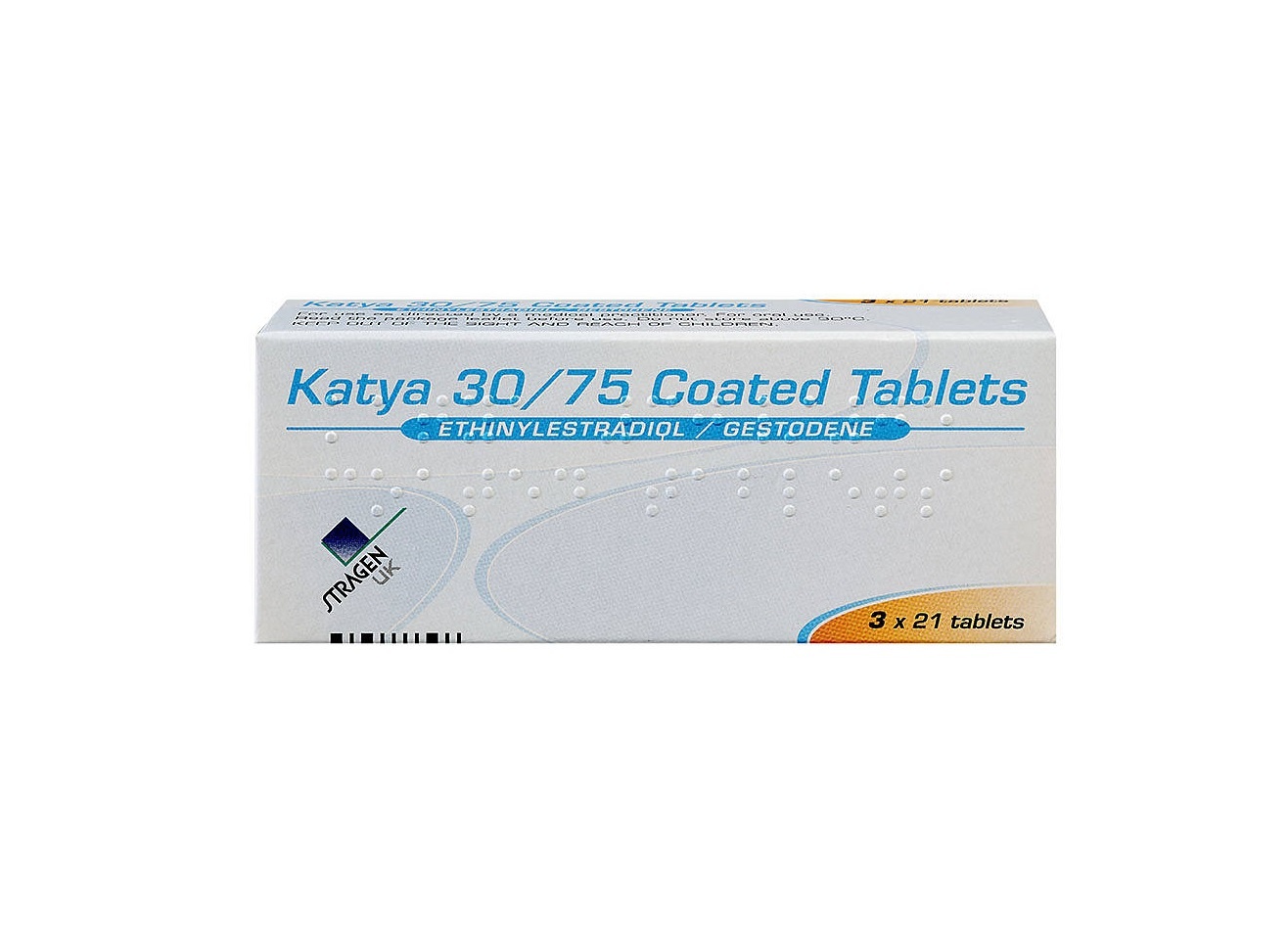

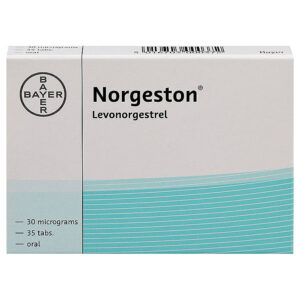
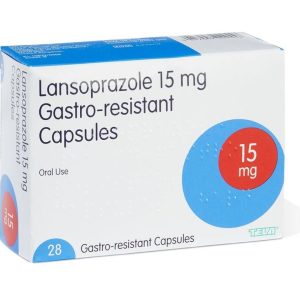
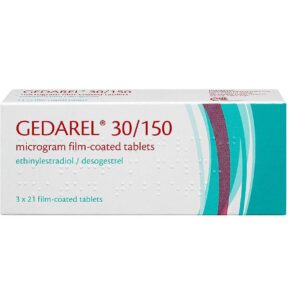
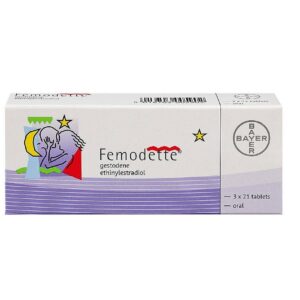
Reviews
There are no reviews yet.